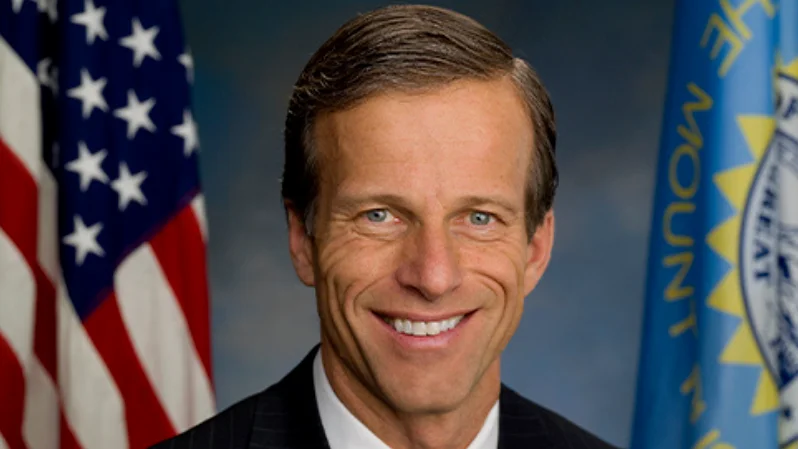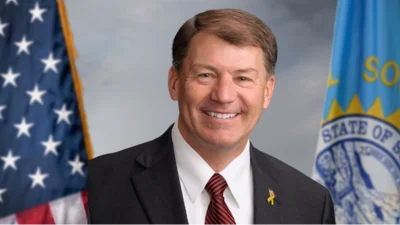Senator John Thune, US Senator for South Dakota | Official U.S. Senate headshot
Senator John Thune, US Senator for South Dakota | Official U.S. Senate headshot
U.S. Senate Majority Leader John Thune (R-S.D.) reviewed the first six months of the 119th Congress, highlighting a series of legislative and procedural actions undertaken by Senate Republicans since gaining the majority.
In remarks delivered on the Senate floor, Thune noted that the Senate experienced its longest continuous work period in 15 years and conducted more roll call votes so far this year than at any similar point since at least 1989. He also pointed out that 21 members of the president’s Cabinet were confirmed at what he described as "the fastest pace in more than 20 years." Additionally, ten ambassadors were confirmed within the president’s first 100 days, which Thune said was "the most since at least the Reagan administration."
Thune detailed legislative accomplishments including passing two budget resolutions to support President Trump’s tax-relief agenda and several bipartisan bills. Among these measures were:
- The Laken Riley Act, requiring detention for illegal immigrants who commit certain crimes.
- The HALT Fentanyl Act, which permanently schedules fentanyl-related substances as highly dangerous drugs and provides law enforcement with new prosecutorial tools.
- The GENIUS Act, intended to bolster U.S. leadership in financial innovation.
A key piece of legislation highlighted by Thune was a reconciliation bill signed into law on July 4. According to his remarks, this bill extends provisions from the 2017 tax relief package—making lower rates, an increased standard deduction, and a doubled child tax credit permanent—and introduces additional relief for parents and seniors. It also establishes savings accounts for newborns with an initial $1,000 deposit.
Thune stated that the bill addresses border security, military readiness, American energy production, and includes "$1.5 trillion in Byrd-compliant savings," describing it as "the first real entitlement reform...in decades."
Looking ahead, Thune emphasized government funding as a chief priority before October. He mentioned ongoing committee work on appropriations bills for fiscal year 2026 and defense authorization legislation. “I’m hopeful for a robust regular-order process,” he said.
Thune expressed disappointment over what he interpreted as threats of a government shutdown from Democratic leadership but voiced optimism about bipartisan cooperation: “But I’m hopeful that that is not the position of the Democrat Party...and that we can work together in the coming weeks to pass bipartisan appropriations bills.”
He added that other priorities include continued confirmation of nominees and advancing Senator Graham’s Russia sanctions legislation aimed at supporting President Trump’s diplomatic efforts regarding Ukraine.
“Senate Republicans are committed to working with the House and the White House to get this legislation through Congress and onto the president’s desk,” Thune said.
He concluded by reiterating his intention to continue working toward making "our country safer, stronger, and more prosperous.”




 Alerts Sign-up
Alerts Sign-up